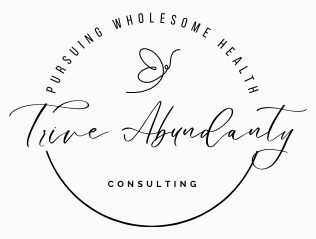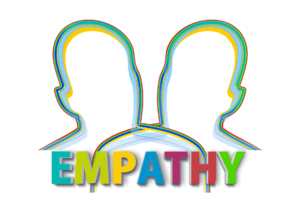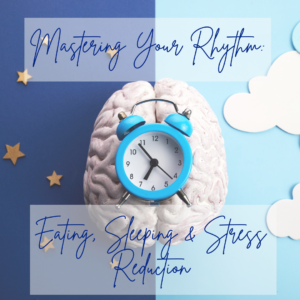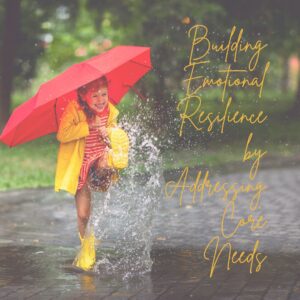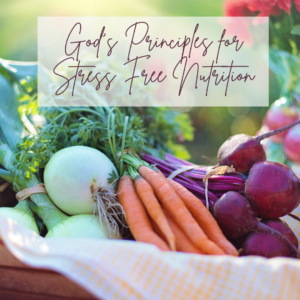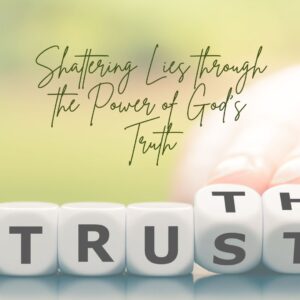This is post 30 in the Living Fully Alive blog series. Please consider reading the posts in the order they were published for the best learning experience.
The previous two posts have focused on what victim mentality is, what some studies showed about learned helplessness, where else it can come from, what it might look like, and how it impacts our view on life. This third post on victim mentality will draw our attention to some of the struggles this type of thinking may cause in our lives, and will help us look at some of the reasons people choose victim mentality. If you are not sure that you are dealing with victim mentality in any area of your life, this post may help you narrow down the parts where you may need to take a closer look.
If you are operating from a victim mentality, you may be finding yourself blaming others for being successful while you aren’t. I think I used to do this in competitive situations such as sports. I didn’t win because all the other kids had people who helped them train. Or I didn’t have a chance because I have to study hard and there was no time for practice. Or they had the better conditions. I ended up making everyone else the villain. It’s always someone else’s fault. Just as a side note, people who try to step into that world and rescue a victim minded person, will end up being villainized too, if the victim isn’t ready to take ownership. There can’t be a victim without a villain, and if someone is not willing to become free from victim thinking, they are going to want to find another villain. Even if there is a villain, a true one, I have the choice if I agree with the villain’s words about me and run with it or if I want to reject it and be powerful. If I agree with people’s statements over me, I am responsible and become the victim.
We can take our power back. We can start doing that by looking back and ask ourselves “how could I have been powerful in this situation?” Owning the choices I made helps me recognize that I am responsible and have the power to choose helplessness or not. Once I see where I chose victim mentality, I need to look for other things I could have done. This trains me to start taking a good assessment of everything available to me instead of just believing there were no other options.
For instance, we have probably all been trapped by a ‘talker’ and walked away an eternity later feeling frustrated at the time lost and feeling like we had no choice in the matter. Feeling trapped probably comes from a rule we have that it is rude to interrupt or stop someone when they are in the middle of talking. But if I have that rule and believe it is essential for courteous conduct, then I need to be aware that I am choosing to follow my rules and should therefore not feel trapped. However, I may decide that no rule that makes me feel trapped is worth having. (I am not talking about moral rules here). Let’s say I don’t want to obey my rule about courtesy anymore and want to take some of my power back. What are some options I have? I could excuse myself and go to the bathroom. I could introduce the person to someone else at the event. I could stop them and tell them I can’t handle that much information or tell them I have somewhere else to go. What other options can you see? I think I am going to be more aware now, that when I feel powerless or trapped, that I probably have a rule I wasn’t aware of that is making me feel helpless. If, however I choose to observe my own rule, then I can’t blame the other person for the time lost, it has become my choice and I accepted the consequence or price that comes with that choice.
Another place we may find ourselves struggling if we have victim mentality is with control. We may believe that if we can control our outside world, then we can be ok inside. People who want to control everything tend to be very powerless internally. Instead of trying to make everything bow to my ‘needs’ it would be healthier to figure out why I need to control in the first place. For instance, someone might say they have to always have everything in order in the house so they can feel peace on the inside. I love a clean house, but if I can’t be at peace even in a messy house, then I have given my power away. Another example might be to have every hour of every day planned out. There is nothing wrong with planning. But if there is panic and fear when I don’t have my calendar all planned out, then I know I am no longer powerful. Can you think of a place where you might fit this description? I have this thing about cleaning the house up and tidying it for company. Maybe it’s considered proper conduct for hosting guests, but my family doesn’t seem to be impacted at all by the thought of having guests in a messy house. I need to examine and explore what it is that causes me to be so uncomfortable with the thoughts of guests in a messy house.
Hopelessness is another area people with victim thinking struggle. Is something driving their life? Is life happening to them and they are not able to do anything about it? If something is driving me, it means I am getting hopeless because I feel helpless. And if hopelessness is driving my life, then I am experiencing powerlessness somewhere. The key would be to figure out where and if there are rules that need to be re-examined, beliefs changed, etc.
Victim mentality can also cause us to feel out of control emotionally. We may feel like our emotions are boss, that outbursts are a thing that just happens. The truth is that we have the power to change our feelings and how we respond to our emotions. If there are big emotional outbursts happening in my life, it means I have not learned how to take my power back. Emotions are not supposed to drive my life, they are supposed to give me information and insight, but they aren’t meant to make the decisions.
Learned helplessness can also cause struggles with feeling abandoned completely and drive us to be in a beggar position, especially with God. If I feel abandoned, I may remember God is the source of the love, affirmation, strength, peace, joy, etc. that I desperately need, and I may feel like I need to beg him for them. However, taking back power in this case looks like remembering what he has taught us, that God actually resides in us and has already given us everything. What I need isn’t somewhere out of sight up in heaven, it is inside of me. My prayers can then turn into a journey of asking God to teach me how to connect with what he has already made available for me, learning how to access it rather than feeling it is out of reach.
Finally, we may be struggling with a general sense of being overwhelmed by life, if we are operating in victim thinking. It comes from believing we are too small, that everything is much bigger than us, which usually comes from the little me inside of us getting triggered by a big circumstance in the present. Feeling overwhelmed is not a dead end, if we learn how to overcome it. If we imagine the little one inside of us is triggered, we can begin by validating ourselves and the feelings we are experiencing, and then we can self-talk ourselves into asserting that we are not a helpless little one any more and that we in fact can deal with the situation at hand. I would like to add, that as people of faith, we should frequently find ourselves in situations that are too big for us, because our big God has fantastic opportunities for us and said we would do greater things that Jesus did with and through us. In feeling overwhelmed, we can also tap into our faith, believe, like our great cloud of witnesses did, and God came through for each of them. It is true that as an adult we have more power and control to deal with things, but it is equally true that if we are truly walking by faith, we will have to lean on our big God for any area that feels overwhelming on our own, even our adult self.
I don’t know about you, but I have seen areas in my life for all of the above. Isn’t it interesting how I assumed if someone lives in victim mentality it will be across the board? I now see that it can show up just in individual areas and not the whole life.
With all the ways victim thinking keeps us trapped, why on earth would we choose to operate in it? Obviously different people will choose it for different reasons. Do any of the following apply to you?
Some choose it because they believe if they continue to act like a victim long enough someone will give them pity, love, help, attention. This kind of reminds me of toddlers who throw tantrums to get what they think they need, and unless they get taught the healthy way to go about it, they will continue in this way.
People might also choose to stay in victim mentality because they fear that if they acknowledge their victim behavior, then their story will suddenly be invalidated. They don’t realize that pretty soon, people will stop wanting to validate someone who keeps complaining about the same thing over and over again.
Others may choose to remain in victim mode because they fear that if they are powerful they will bulldoze over people like they have been bulldozed over. Think of how Justin was experiencing this with the big mentor in his life.
Sometimes it is also simply beneficial to stay in victim mindset because people expect less of us that way. If we present a helpless persona, people will generally confront us less, be easier on us, which is an easy way to escape a hard situation where we might otherwise need to take ownership. There is an element of laziness in that approach to life.
There might also be a fear of what the people in our lives will do if we suddenly take back our power. Will they be angry? Will they pull away? The fear of loss of relationships may keep us in victim mentality. After all, almost always, when one person changes, it changes the dynamics of the relationship, and we may be afraid of the unknown variables involved.
If anything in this post has hit close to home, please understand that Abi mentioned, she as well as all her clients have issues with victim mentality one way or another, and it creeps up even after much work has been done. I say this so you will not feel discouraged and so you can put it in perspective.
If there are concrete examples from your own life that you want to deal with right away, go back to what you have learned about self-validation and forgiveness and apply those tools to the memories that came up. It is great practice and powerful work. Give yourself compassion. No matter how hard your life is, you don’t have to survive by being a victim. You always have some things you have a choice over, even if it’s choosing gratitude, choosing to see good in every circumstance. You control what you do on the inside. Always fight for what you can do. Also explore questions such as how you can thrive while things around you are out of your control.
Additionally, I will explore if I consider anyone in my life a villain. If I do, are they the villain because I need someone to blame, or are they true villains? I believe true villains really do exist. We don’t just stop having villains in our lives when we get free of victim thinking. I think life will always have villains that try to push us into serving their purpose. The point is to recognize what gives them power over me as they show up and take the power back.
I encourage you to look at every aspect of your life and ask where in my life and how do I act like a victim?
And a more scary thought for me is to ask, “do I victimize others?” (giving pity to people is a broken form of compassion, they said.) Are there any people I look at as small, powerless, incapable of changing their lives?
In all the issues that surface, what is the power that I do have?
Finally, listen to this podcast to hear how one person decided to take her power back and become powerful in all the ways she could instead of being defeated by looking at all the things she couldn’t do anything about. I think it will encourage and inspire you.
Episode 11 of The Connected Life Podcast: Your Story Is Not Finished
To learn more about the Living Fully Alive course, please click the hyperlink.
